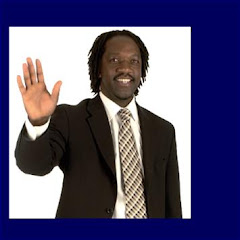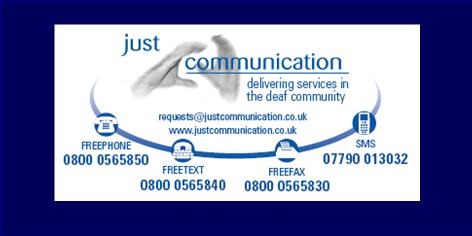In July, Ofcom published a review of relay services, proposing the introduction of a video service that would enable phone calls in sign language. Deaf people would sign into a device incorporating a video camera, with an interpreter in a remote location translating their signs into speech.
On the surface, Ofcom's consultation offers a massive improvement to deaf people's lives. In the UK, there are estimated to be between 50,000 and 70,000 people who use British Sign Language as their primary form of communication. BSL has a different structure, grammar and syntax to English, with an emphasis on body language, facial expressions, and gestures.
Because of this, deaf people who use sign language as their first language can find it harder to use text-relay services which depend on a high level of written English (where they type on a keyboard, with an operator voicing their words to a hearing person on the other end of the phone line). The VRS Today campaign estimates that sign language users would be able to use video relay services four times faster than text relay.
But there's one catch. While in America, deaf people (who have had the service since 2002) can make phone calls on an unrestricted basis, at any time of day, any day of the week, Ofcom has proposed that in Britain, deaf people will be given a quota allowing them to make just 30 minutes of calls a month. Worse, the service will only be available between 9am and 5pm on weekdays.
Imagine being restricted to 30 minutes a month – would that be enough time to organise your life, speak to friends and family, your work or your utility company? What if there's a call you need to make in the evening? What happens if a company puts you on hold? Or if you haven't finished your call as your time runs out? Then, even if a deaf person has a great call and finds the service really useful, they are left waiting for a month for the next chance to use it.
If there is a need for a video relay service for deaf people – and Ofcom agrees there is – then making it available in such a limited way makes little sense. It would make it hard for deaf people to get into the habit of using it, and would make using video relay a frustrating experience, which would in turn have a knock-on effect on its take-up by the deaf people it is aimed at. Thirty minutes a month amounts to a half measure, giving with one hand while taking away with the other.
Deaf organisations, including groups specifically focused on telecommunications like TAG and DAART have campaigned for years for improvements to relay services (with improvements to text relay services being high on the agenda as well as video relay). One major irony is that many deaf people (including my mother) have for years paid for packages incorporating free voice minutes on both mobile phones and landlines which, due to their deafness, they cannot use.
The UK telecommunications industry was worth £40bn in 2009, while Ofcom's proposals estimate that offering deaf people an unrestricted video relay service – 24 hours a day, 7 days a week — would cost just over £40m. Ofcom's proposals were described as "outrageous and highly unacceptable" byDavid Buxton, chief executive of the British Deaf Association.
The deadline for responses to Ofcom's consultation passed last month. Just days earlier, a petition with more than 2,500 signatures, supported by nearly every major deaf charity in the UK, was delivered to Downing Street calling for unrestricted access to video relay. That same day, a roundtable meeting was held between deaf organisations, telecommunications companies and the government, including Ed Vaizey, the communications minister. Deaf people now face an anxious three-month wait before finding out whether they will have the same freedom to use the telephone as their hearing counterparts.
Ironically, in advance of Ofcom's decision, a pilot project part funded by the European Commission called myFriend is offering deaf people the chance to try out video relay services as part of a concept calledTotal Conversation. From 1 November, deaf people who take part will be able to make phone calls using a BSL interpreter for up to four hours a day. However, when the pilot ends in June 2012, deaf people face going from over 100 hours of potential use a month, to a quota of just half an hour a month if Ofcom's current proposals remain unchanged. That's a reduction of over 99.5%.
It's no exaggeration to say that introducing video relay with huge limitations would mean that a massive opportunity to transform sign language users' lives for the better could be squandered. The communications industry has seen huge technological advances in the last decade, but sign language users have been left trailing far behind. Equality should mean freedom, choice, and independence, and only offering video relay services without imposing a harsh time limit can truly offer that to deaf people.







No comments:
Post a Comment